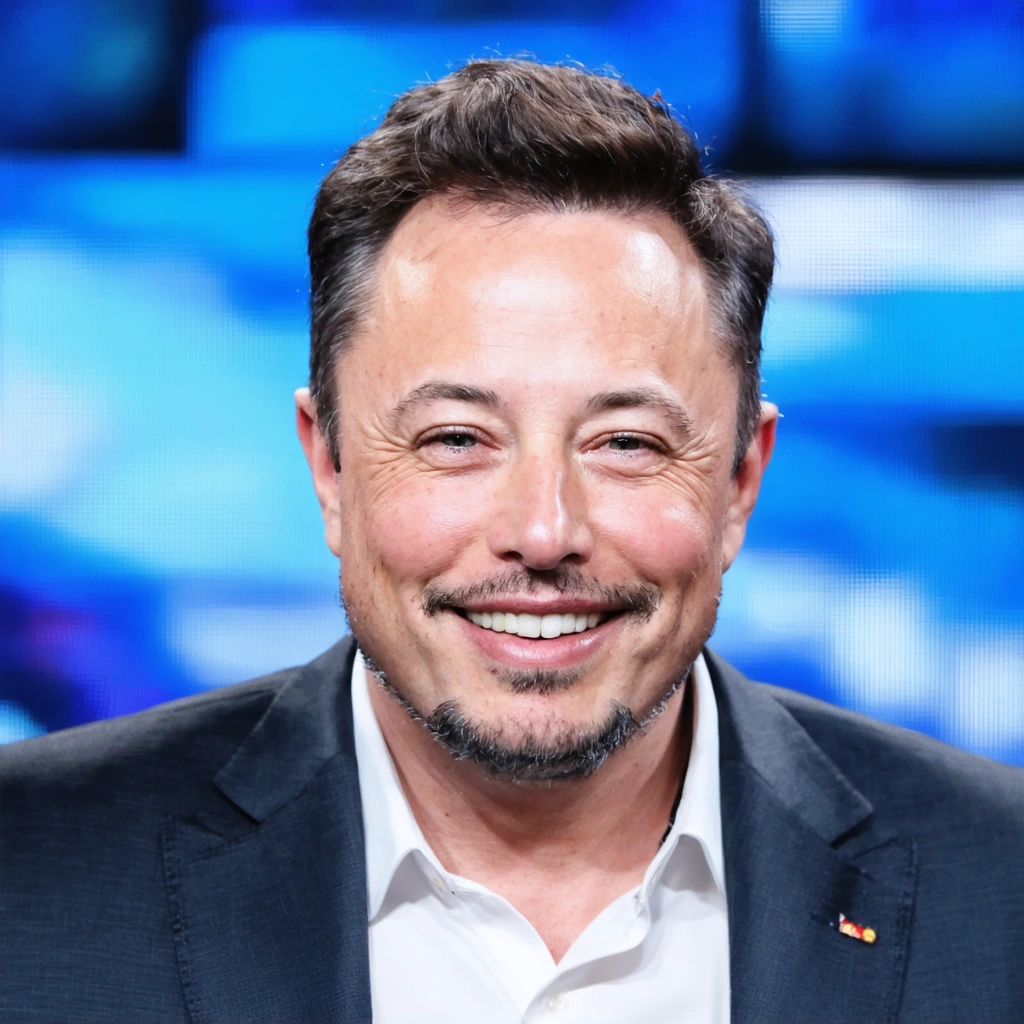
Introduction to the Controversy
In a recent display of sharp wit and commanding stage presence, television host Jimmy Kimmel struck back at critics Elon Musk and J.D. Vance. The exchange, marked by humor and pointed commentary, has sparked widespread discussion both in the entertainment industry and among political analysts. Kimmel’s deliberate retort not only deflected the criticisms but also set the stage for a deeper dialogue on the influence of celebrity commentary in today’s media landscape. Amid accusations and playful jabs, one particular quip resonated strongly: “Authorities are now investigating which Teslas were set on fire and which set themselves on fire.” This statement, loaded with irony, became a focal point of discussion, blending issues of technological scrutiny, political dynamics, and the unexpected intricacies of modern media.
The Role of Satire in Modern Media
Jimmy Kimmel has long been known for his ability to use satire as a tool to expose contradictions in politics, business, and technology. His latest retort serves as a prime example of how satire can be used to navigate complex public debates. In an era where every remark is amplified through social media, Kimmel’s comments intersect humor with incisive critique, challenging figures of authority and power in a manner that is both engaging and thought-provoking.
Breaking Down the Key Elements of the Exchange
The recent episode involving Kimmel’s witty comeback to Musk and Vance highlights several critical themes that are of significant interest to media professionals, business analysts, and political commentators alike. This section examines the different aspects of the confrontation.
Criticism and the Media Spotlight
Critics, including high-profile figures like Elon Musk and J.D. Vance, can often evoke polarized responses from the public. Kimmel’s response was measured and layered, reflecting a deep understanding of media dynamics. His commentary was not solely reactive; it was a premeditated maneuver that reflected:
- The challenge of balancing humor with seriousness in public discourse.
- The importance of maintaining authenticity while navigating high-stakes criticism.
- How celebrity commentary can influence broader political and technological narratives.
Each of these points underscores Kimmel’s ability to transform contentious topics into engaging conversation starters.
Elon Musk and J.D. Vance: Their Criticisms and Impact
Both Musk and Vance have positioned themselves as influential voices in their respective fields. Musk, known for his pioneering work in technology and space exploration, has a reputation for venturing into controversial social commentary. On the other hand, J.D. Vance, whose political perspectives and candid opinions have stirred debate, represents a segment of public discourse that is equally complex. Their criticisms of Kimmel can be seen as part of a larger dialogue that touches on:
- The boundaries between entertainment and political commentary.
- The impact of public opinion on corporate responsibility and technological innovation.
- The evolution of cultural debates in an increasingly polarized public space.
Kimmel’s retort serves as both a rebuttal and an invitation to examine these intersections more closely.
Examining the Quip on Tesla Incidents
One of the most memorable elements of Kimmel’s exchange was his remark about Tesla incidents. This statement, “Authorities are now investigating which Teslas were set on fire and which set themselves on fire,” deftly combines humor with a critique of accountability and public relations in the tech industry.
The Significance of the Tesla Reference
This reference was not made in isolation. It touches on broader themes such as the reliability of technological advancements and the accountability of large corporations. The quip is multilayered:
- Irony in Technological Claims: The statement plays on the ongoing debates regarding the safety of automated technologies versus human error, raising questions that are both relevant and enduring.
- Corporate Responsibility: By invoking Tesla, Kimmel nudges the conversation toward the responsibilities of companies in managing not just products but also public narratives.
- Media Amplification: Satirical remarks like these are prone to extensive discussion on digital platforms, often becoming part of a larger conversation about the reliability, or lack thereof, of modern technologies.
Investigations and the Business Implications
The mention of investigations into Tesla vehicles – whether they were deliberately sabotaged or suffered failures autonomously – underscores the evolving nature of accountability in high-tech industries. Business analysts note that such scrutiny can have wide-ranging consequences, including:
| Factor | Implication |
|---|---|
| Technology Reliability | Increased demand for transparency in design and manufacturing processes. |
| Public Trust | Heightened focus on crisis management and brand reputation. |
| Regulatory Attention | Plausible adjustments in oversight and safety regulations for emerging technologies. |
Such factors heavily influence business strategies and public-sector policies alike, drawing attention to the interplay between humor-infused commentary and serious economic considerations.
The Broader Implications for Media and Business Dialogue
The interplay of comedy, politics, and business is increasingly evident in today’s media. Kimmel’s response encapsulates an emerging trend where entertainers are not just passive commentators but active participants in shaping public discourse. His approach reminds stakeholders of the inherent power of satire in modern communication, particularly when it touches on sensitive issues like corporate responsibility and political criticism.
Balancing Humor with Corporate Messaging
Successful communication in the corporate world often requires a fusion of humor and gravitas, particularly when addressing controversies. Kimmel’s deft handling of the situation offers several lessons:
- Clarity in Message: Regardless of the medium, ensuring that the underlying message is clear is paramount.
- Engagement with Diverse Audiences: Utilizing humor can break down complex subjects for a broader audience, making challenging topics accessible.
- Stoking Constructive Debate: By leveraging his platform, Kimmel has opened up avenues for discussion that cross traditional boundaries—political, technological, and cultural.
This balance is especially vital in a world where the lines between entertainment and substantive public debate are increasingly blurred.
Future Trends in Media Critique and Corporate Accountability
The incident serves as a case study for how media personalities can shape narratives and influence perceptions in sectors traditionally dominated by regulatory oversight and corporate caution. Upcoming trends may include:
- Increased incorporation of satire in corporate communications.
- Enhanced scrutiny of public figures and corporate practices in real-time.
- A more integrative approach to addressing controversies, where humor is used as a tool to initiate dialogue.
By adopting these approaches, both media figures and business leaders can benefit from a more transparent, engaging, and ultimately productive public discourse.
Conclusion: The Intersection of Humor, Critique, and Business Strategy
Jimmy Kimmel’s recent interactions with Elon Musk and J.D. Vance illustrate a broader shift in how criticism is both delivered and received in today’s interconnected world. His blend of pointed humor and insightful commentary is reflective of an era where public figures use digital platforms to engage with complex issues. The conversation around Tesla fire investigations serves as a microcosm of larger debates involving technological progress, accountability, and the role of satire in maintaining a healthy discourse.
Key Takeaways from the Exchange
For media professionals and business strategists alike, the following points encapsulate the significance of the episode:
- The power of humor to defuse and redirect contentious issues.
- The increasing influence of media personalities in shaping public and corporate narratives.
- How well-crafted satire can serve as a vehicle for both entertainment and serious critique.
These insights underscore the transformative impact that well-timed commentary can have, not only in the realm of entertainment but also in broader conversations encompassing technology, business, and politics.
Final Reflections
As the dialogue between prominent figures like Kimmel, Musk, and Vance continues to evolve, it becomes clear that the boundaries separating disparate fields are becoming more porous. Moving forward, the intermingling of humor and critical analysis may well define the next chapter in media and corporate communications. This evolution, while challenging, promises a more dynamic and responsive exchange of ideas that can benefit audiences and stakeholders across multiple domains.




